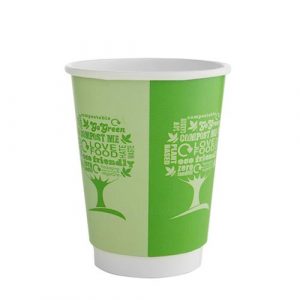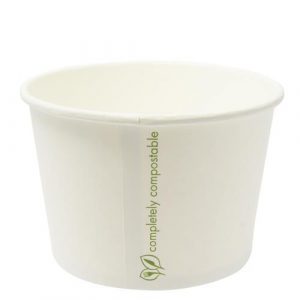When the rise of environmental concerns occur the demand for a response from players in the food & drink industries increases. As trends change & businesses in the industry expand operations, all manner of restaurants & caterers are increasingly put under pressure to enhance corporate social responsibility. This is as a result of the environmental concern that higher rates of waste are being created. As worries for packaging, recycling & waste management are on the rise, there have been developments looking into both how action has been taken & what can be still be improved upon.

How better companies are handling packaging waste issues
Whilst the pace for progress in companies reducing their packaging is slow, it is progress nonetheless. Whilst smaller companies may be less compelled by motivators other than costs saved by reduced packaging, an increasing amount of larger companies are making it their corporate social responsibility to reduce environmental impact. They do this by replacing current packaging materials with efficient environmental alternatives.
Coca Cola for example: With packaging being worth 52% of their carbon footprint, the soft drink giant drew its focus to using recycled and renewable materials. This included 25% recycled material in plastic bottles, 37% in glass bottles & 50% in aluminium cans. In early 2014; Supermarket giant, Tesco, set out on the same sort of path as well, taking directives such as changing the standard pulp cartons for packaging eggs to a recyclable plastic.
Whilst some businesses may be making their packaging more efficient, others are providing entirely biodegradable varieties to allow them & their consumers to reduce the impact of their packaging waste from the get-go. Alliance specifically supplies a dedicated range of eco-friendly containers & packaging products: The Green Shop. A highlighted Green alternative Alliance is providing is the Vegware range: a renewable; compostable brand of cups, napkins and takeaway containers accompanied with its simple & stylish design containing a plant-based lining. Providing non-landfilling options such as compostable board cups or recyclable drinking glasses, more companies like Alliance are continuously supporting new innovations to reduce the ecological impact of their packaging on the environment.
With recent calls banning the use of polystyrene, what alternatives can caterers source?
With the vital bans of the chemical-filled & non-biodegradable polystyrene due to health & environmental concerns being demanded, eco-friendly materials for restaurant’s & caterers recycling products are in more demand than ever.
Compostable containers are a growingly popular example due to their material make-up: peat fibre; palm fibre, insulated paper board, wheat stocks & corn starch. These materials are easily able to break down into compost piles. Which material-based alternative to go with would depend on a caterer’s stored product (e.g. heated drinks, frozen goods, produce etc. Not only is compostable containers eco-friendly, disposing of them is also more space efficient when storing into recycling bins instead of stacking polystyrene boxes on your street corner by the bins.

Secondly, edible food containers are an option that is also being continuously explored. Earlier this year, KFC acted with a packaging replacement as a response to a ban of plastic packaging in Bangalore, India. Rice Bowlz: Vegetable or chicken rice housed in an edible, tortilla bowl. Being worth 6% of KFC’s domestic revenue, products like the edible packaging replacements like the Rice Bowlz are proof that niche alternative packaging can work if it is adopted & catered to consumer response. The same can be said for KFC branches last year in the UK; when they began the edible packaging trend by experimenting with alternative coffee cups: being made of biscuit, sugar paper and heat resistant white chocolate, replacements for large quantities of polystyrene cups used every day is now a possibility for caterers everywhere.
Reusable containers: the most immediately costly among the three alternatives but the most qualitative if presentation is a one of your caterer’s USP’s (Unique Selling Point). Going back to basics as it were, using non-disposable food-ware made of metal, qualitative plastics & ceramics not only gives customers that homely, restaurant feel to their food & drinks but it also puts less of a strain on waste disposal systems. Manchester Market stalls were among the first in the UK to implement an efficient system for this successfully when a customer would rent a mug or glass, they would pay an additional deposit which would be refunded upon return. Not only is this replicable by all caterers, but it is also adaptable in terms of customisation by any service provide: breakage policies, adjusting prices for high cost items e.g. quality crockery or crystal glasses.
Are students aware of packaging and recycling issues and do they demand less packaging/more recyclables?
From student brackets of young primary school students to mature year 11’s, awareness regarding environmental issues in packaging & recycling has been implemented at least once in each educational curriculum: ensuring that future adult consumers understand the message of taking environmental effect into account when considering packaging & recyclables. Unfortunately, the need to spread motivation for this message amongst young students remains at large. Awareness of the issues has been spread but it does not necessarily reflect into a demand for efficient, eco-friendly packaging in their schools. Students are continuously taught to recycle the packaging they already deal with. However, as they are not taught how the level of recyclable packaging used for food & drink could affect them directly (i.e. pricing), then there is no real reason for the demand to increase for recyclables.
What caterers can do to combat more people eating & drinking on the go
Schedules are more packed than ever & lunch hours now seem to be more like windows to run errands. Food & drink on the go has become a staple for commuters & workers more than ever. Not only is providing to-go options a valuable additional income opportunity for caterers, it is also necessary for their survival if it has not been adapted into their business model already.
Thankfully, with the broad range of durable & quality packaging, caterers will be successfully able to meet the demand of the ever-growing to-go trend without compromising on the quality of their product. Alliance for example have dedicated themselves to continuously providing a wide-net range of food boxes & containers to provide for caterers of all types: meal boxes; clamshell boxes, chip cones/scoops, pizza boxes, double wall hot cups or even foil containers. Not only is there a great variety of recyclable & compostable to-go food & drink packaging such as these for caterers across all industries, they are also fantastic value for money by selling units in bulk: making entry into the market easy for each of their sectors.
How food packaging waste is becoming an issue
It has been revealed in recent years the dire issue that food & packaging waste has presented, creating the need for a bigger stance on recycling, compostable alternatives & food waste awareness. As demonstrated through studies carried out on the issue; such as several WRAP (Waste & Resources Action Programme) studies in 2013 have found that increases of food waste within UK households, hospitality, food service, food manufacture, retail and wholesale sectors measure to around 12 million tonnes. The study goes on to reveal that not only could have 75% of this figure been avoided but it also has been associated with 20 million tonnes of greenhouse gas emissions.
Additionally drawn from the WRAP 2013 study, approximately 41 million tonnes of food are purchased in the UK each year, 15 million of which ends up as waste: around a third of all total food purchased, putting immense pressure on landfills year round. The amount wasted in UK Packaging has also staggeringly grown each year. In the combined sectors of Manufacturing, Retail, Hospitality & Food Service sectors, millions of tonnes worth of waste is contributed by unrecycled packaging alone.
The more un-compostable food & packaging materials that are thrown into landfill sites, with some sites being poorly handled (attracting vermin), the more dangerous & polluting chemicals are created: such as Methane gas or Leachate. Not only has these higher levels of waste been a continuous waste of potential resources but these have also been carrying on negative environmental impact.
Is waste management a behavioural issue or are there other ways for caterers to enforce good waste management both front and back of house?
Poor attitudes towards waste management are contributed by behavioural issues, although poor waste management can only be really combatted effectively when regulations both at front & back of house are enforced. Whilst awareness of waste management issues generate voluntary effort towards recycling & efficient disposal, this doesn’t equate enough to combat the issue. Too many players in the industry; restaurant staff, manufacturing companies, private caterers and the like put convenience before environmental impact.
However; as demand for control of packaging materials is clear, such as major London chefs writing to the London Mayor calling for a ban on polystyrene, it is proof that companies do contain decision makers who are willing to enforce regulation for their staff & practices. Placing additional recycling disposal units, implementing disciplinary procedures for unnecessary waste disposal & providing team bonuses based on percentage of waste are personal, effective motivators to have both front and back of house staff on board towards wide spread waste management initiatives.
Final Thoughts
Any restaurant owners, caterers, store owners & any food/drink-based business owners must make creating and/or maintaining waste management practices one of their top priorities. This should also be kept in the thoughts of regular consumers as well but it is mostly business owners and staff who are the key players in this issue, due to being the providers of said food & packaging that are put in the hands of said consumers.
Get some recycling bins, purchase some compostable & recyclable products and of course do what you can to spread further awareness on the vital need for eco-friendly initiatives. Not only will you be doing your part in helping the food & drink industry adapt to environmental needs but the public knowing you’re following your corporate social responsibility for the environment will help your sales too!
If you want to learn more about options for recyclable, environmentally friendly products and find some great deals on the latest & exciting catering equipment available, you can find our amazing range in our Green Shop.
